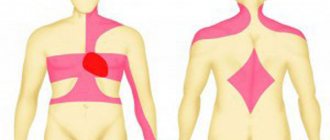Signs of hysteria
Hysterical attacks are accompanied by increased emotionality. At the same time, human behavior is uncontrollable. It is accompanied by the following symptoms:
- Increased tone, reaching the point of screaming;
- Tears;
- Crying alternating with laughter;
- Rapid breathing and heart rate;
- Facial redness;
- Tremor of limbs, convulsions;
- Incoherent, not always understandable speech, stuttering;
- Increased gesticulation.
The essence of a hysterical attack is to attract attention to yourself and your problems.
Causes of hysterics
Despite the deep, personal problems of a person, the causes of a seizure lie on the surface.
The basis of all hysterics is the discrepancy between the desired result and the actual one. However, the driving forces that provoke an emotional explosion are different:
- Constant lack of sleep;
- Increased fatigue;
- Hunger;
- Chronic diseases;
- Frequent conflicts;
- Features of the nervous system;
- Childhood psychological trauma.
Risk groups and ways to remove them from a stressful situation
Any of us can be susceptible to hysterical attacks. However, there are some categories of citizens who are a little more sensitive to failures and are more susceptible to emotional influence from the outside:
- Children;
- Teenagers;
- Women;
- Aged people.
Children's tantrums
Children's tantrums seem frivolous to us. Although for a child the problem he faces is of great importance. But he can’t always find a way out for a solution. This is where nervous breakdowns happen. The child begins to cry loudly, stomp his feet, fall to the floor, and beat with his fists. To distract him from hysteria, you need:
- Stay calm yourself.
- Switch his attention to something else: show a new and interesting object, offer some kind of treat, or turn on something with a sound effect, be it a toy, book or TV.
- Take the baby in your arms and hold him close.
Children's historical attacks can last as long as desired. The main task of the parents is not to leave him in the room alone, so that he cannot harm himself, and not to succumb to an emotional explosion.
Teenage tantrums
A teenager's tantrums have a more serious underlying cause. After all, it is during this period that they want to please others and attract attention. At the same time, they are often unsure of themselves and self-critical. To extinguish an incipient breakdown, it is worth:
- Just listen to all the teenager’s dissatisfaction, without reproaches, complaints and insults;
- Remain calm and steadfast, even in a situation where accusations are thrown at you;
- After his speech, try to explain that there is always a way out of any situation, sometimes it’s just not immediately visible.
- When the teenager calms down, try together to figure out the problem that is gnawing at him and help him make a decision.
Women's hysterics
It is known that women are more emotional than men. And the accumulated stress has a greater impact on their mental health. If a woman becomes hysterical, you need to endure this moment. Listen, silently and calmly, let him shout, hug him tightly, hold him close. But under no circumstances should you be left alone with your emotions. Firstly, this could be the last straw of a nervous explosion, which will lead to dire consequences. And secondly, if the woman calms down, then your departure and indifference will be regarded as betrayal. After all, the fair sex sometimes desperately needs a strong shoulder. When the woman calms down, you should offer her warm tea or fill a warm bath, or give her a massage. In any case, the attention of her loved one is important to her.
Elderly tantrums
Problems of hysteria in older people are associated with a lack of attention, communication, anxiety for loved ones, and fear of being left alone with their problems. Hysterics at this age are dangerous due to exacerbation of chronic diseases and weakening of the immune system of an already fragile body.
It is necessary to pay attention to elderly relatives, listen to them, and take an interest in their health. After all, this is the little that can be given to them. But it is care and interest that will help prolong the life of our relatives.
In addition, scientists include people with increased imagination, self-hypnosis, and those prone to sudden mood swings as risk groups.
How to stop a tantrum. Yours and others'
From time to time, each of us gets nervous, but if in some cases we find strength in ourselves and calm down, then in others we simply break down, and then it is better for those around us to keep a decent distance - so as not to get caught in the blast wave.
During a hysteria, we, as a rule, cannot control ourselves, and then the real “smash-break” begins: we cry, scream, throw pillows and phones, break dishes, kick doors and chairs...
But it’s not only furniture and the people around us that suffer from our nervous breakdowns. The poor body, which we do not take care of at all, also takes the blow, and after some time it can respond out of nowhere with serious diseases.
Surely you know for yourself: once a hysteria has started, it is almost impossible to stop it. The people around you are annoying, everything is boiling inside, and you want to scream, cry, and sometimes even destroy half the room or office if a breakdown happened at work.
Need I say how terrible we look at these moments? Eyes bulging, animal grin, mascara smeared, cheeks burning. Far from being a beauty, is she? But much worse than an unattractive appearance is what is hidden from prying eyes: we are tense to the limit, and our heads seem about to explode, we don’t recognize ourselves, logical thinking turns off, giving way to something irrational and completely unusual for us. This is why usually calm people suddenly become overly talkative, cry, laugh hysterically, get into fights - in general, behave more than inadequately.
Of course, it’s easier to prevent such a state than to try to cope with it, but since each of us falls into hysterics from time to time (there are too many reasons: from problems in the family to troubles at work), then we should know how to handle ourselves. hands and become calm and sane again. In addition, we often find ourselves unwitting witnesses to another person’s nervous breakdown and have absolutely no idea how to behave in such a situation. On how to cope with hysterics, your own and others’, read the advice from Cleo.
HOW TO DEAL WITH YOUR HYSTERICS
1. Take a break. If you feel that your nervous tension is going through the roof and you are about to explode, then try to delay the time of a possible breakdown: count to ten, take a few deep breaths and exhalations, go outside or to the balcony to get some fresh air. In general, try to switch your attention to something calming.
By the way, pets are excellent helpers in the fight against hysterics. Therefore, if a quarrel with your loved one has reached its limit, it is better to start petting the cat or watching the fish in the aquarium - this calms you down.
2. Look at yourself from the outside. If a breakdown does occur, then pull yourself together and try to imagine what you look like from the outside.
Listen to what you say to other people, and you will understand that now in their eyes you are just an angry “vixen”, uttering offensive and sometimes meaningless phrases, inadequate, with whom it is useless to talk and explain anything to her. Believe me, tomorrow you will be ashamed of your behavior in front of your superiors, colleagues or loved ones.
3. Move. During a hysteria, it’s better to start running circles around the room than to scream at someone for no reason and take your anger out on innocent people. Psychologists advise directing the aggressive energy that overwhelms you in a direction that is peaceful and harmless to others and spending it on movement.
By the way, physical activity is also a great way to relieve stress. It would be better to stand on a treadmill or lift dumbbells than to strain your vocal cords.
4. Drink water. If no one has yet managed to douse you with it, then it’s better to take a glass of water yourself and drink it to the bottom. By the way, it would be a good idea to wash your face - rinse your face with cold water to sober up your temporarily clouded mind.
HOW TO DEAL WITH SOMEONE else'S HYSTERIC
1. Let it go wild. You should not persuade a person to calm down, enter into a debate with him and feel sorry for him. Any response on your part only fuels the desire to become hysterical further. It’s better to just go into another room or pretend that you don’t notice his inappropriate behavior at all. Let him calm down.
2. Take action. If you understand that a person is going too far and completely cannot control himself: he is shouting at children, throwing things, breaking dishes, then try to sober him up with some sharp and unexpected action.
You can give him a gentle slap, pinch his arm, or pour a glass of water on his head. It may seem wrong and even risky to you now, but sometimes hysteria cannot be stopped any other way.
3. Offer a sedative. It doesn’t matter whether it’s valerian or another remedy, the main thing is that it helps. By the way, if you feel that hysteria is about to happen to you, also use medicine to be sure
Source: kleo.ru
How to distinguish hysteria from manipulation and from epilepsy?
Sometimes hysterical attacks that occurred against the background of a nervous breakdown can be mistaken for the process of manipulating a person in order to achieve one’s goal. It is worth distinguishing between these processes in the early stages to avoid problems in the future.
- Hysteria can occur in the presence of any person and will continue even in the absence of spectators, while manipulative actions are aimed at specific people.
- During a hysteria, a person is not able to control his feelings; they are clearly visible. During manipulative actions, the emotional orientation can change: from loud screams to whispers, from swear words to affectionate ones, etc.
- During a nervous attack, a person is unable to control his actions. During it, he may harm himself (or another person). During manipulation, people are fully aware of what is happening, and are not ready to seriously harm anyone for the sake of their interests.
It is also necessary to be able to distinguish hysteria from epileptic seizures. Outwardly they may look the same, but there is still a difference between these problems. And, accordingly, the methods of approach to getting rid of them also differ
- With epilepsy, a person falls backwards on the floor, not thinking about the fact that he may be injured; the body is beyond his control. During hysterics, as a rule, if a loss of balance occurs, it is done more carefully.
- During epileptic seizures, uncontrolled vital processes are possible: salivation, tongue biting, urination, defecation. During hysterics, these processes remain under the control of the brain.
- Some time after a hysterical attack, a person is immediately able to return to his activities. After epilepsy, it takes him a long time to come to his senses, sometimes falling asleep for a long time.
Tears
Crying is a reaction that allows a person to express overwhelming emotions in a difficult crisis situation. Everyone has cried at least once in their life and knows that tears, as a rule, bring significant relief.
When a person finds himself in an extreme situation, he cannot immediately return to normal life as if by a wave of a magic wand. He is overwhelmed with strong emotions, and tears in this case are a way to throw out his feelings.
A person must SURVIVE any tragedy, any loss. To survive means to accept what happened to him and to build a new relationship with the world. The process of experiencing cannot happen immediately; it takes some time. Emotionally, this is a very difficult time for a person.
Tears, sadness, sadness, reflections about what happened indicate that the process of experiencing has begun. This reaction is considered the best.
If a person holds back tears, there is no emotional release, and this can be harmful to the mental and physical health of the person.
Help for the victim
- We need to let this reaction take place. But being next to someone who is crying and not trying to help him is also wrong.
- Try to express your support and sympathy to the person. You don’t have to do this with words, you can just sit next to him and let him feel that you sympathize and worry with him. You can just hold a person’s hand; sometimes an outstretched helping hand means much more than hundreds of spoken words.
- It is important to give the person the opportunity to talk about their feelings.
- If you see that the crying reaction has been prolonged and tears no longer bring relief to the person, you can offer him a glass of water - this is a well-known and widely used remedy.
- You can invite the person to concentrate on deep and even breathing, and do something together with him.
Help yourself when you cry
- If you cry, you don’t need to immediately try to calm down, “pull yourself together.” You need to give yourself time and opportunity to cry.
- However, if you feel that tears no longer bring relief and you need to calm down, then you need to drink a glass of water, then breathe slowly but shallowly, concentrating on your breathing.
Unacceptable actions
- There is no need to try to stop this reaction, calm the person down and convince him not to cry.
- Do not assume that tears are a sign of weakness.
Treatment of hysteria
The most important rule, if a person begins to have a hysterical attack, is to maintain composure and sobriety of mind. You need to assess the situation and pull yourself together. And direct all actions to calm the emotional explosion.
However, with frequent hysterics, local relief of attacks is no longer sufficient. It is worth considering more serious treatment. To suppress nervous breakdowns, methods such as:
- Drug therapy;
- Auto training and yoga;
- Massage and self-massage;
- Moderate physical activity: walking, running, swimming, cycling. These processes sublimate increasing stress into energy that can be spent usefully;
- Help from a psychologist, psychiatrist or psychotherapist.
How to stop hysterics in an adult?
As is the case with many diseases, the Sympaty.net website is confident that it is better to prevent hysteria than to subsequently remove a person from this state.
If you see signs of an incipient seizure, quickly shift the person's attention to something that will completely absorb his interest and even slightly shock him. If you are familiar with it, you better know what it could be. In the case of a stranger, tell him “big news,” even if it’s made up, preferably positive.
Some psychologists advise “getting through the hysteria to the end,” that is, completely getting rid of emotions that have been accumulating for a long time.
On the other hand, prolonged emotional stress can lead to problems with blood circulation.
But what to do in cases where a nervous breakdown is inappropriate, and the person is required to be completely collected, for example, in an emergency?
Several effective ways to stop sudden hysteria
- A loud slap in the face quickly “sobers up” a person.
- Do something unusual and noisy: scream, drop a heavy object, slam, break something, pull down the curtains along with the curtain rod.
- Ask a few questions that you need to remember the answers to. For example, ask a friend how old her grandmother is or the name of the hairdresser where she always gets her hair cut.
- An effective way to stop “demonstrative” hysteria is to limit the “spectators”. In the case of a conscious, manipulative hysteria, this will work quite quickly. If there is a suspicion that a person is “acting out a performance,” lack of attention will reduce the hysteria to nothing.
- Pour cold water over it. On the one hand, this will be an unexpected act, on the other hand, cooling the body sharply slows down emotional reactions.
- Discreetly calling the mobile phone of a friend who is hysterical will distract attention.
Prevention of hysteria
Prevention of a nervous attack lies in the attitude of family and friends towards the patient. You cannot be overprotective, but indifference is also unacceptable. It is important to maintain the same relationship and not touch on the problem that caused the breakdown. The atmosphere in the family should promote mental recovery and saturate with positive emotions.
Psychologist on how to properly calm a person
Fatigue, psychological stress - any of us is susceptible to this condition. But not everyone is able to cope with it on their own. This results in hysterical fits. And in this case, the help of loved ones is important. They are the ones who must support and reassure a person without damaging his psyche.
Hysterics
Hysterical reaction – in dry medical words “an active energy-consuming behavioral reaction.” A person violently splashes out his emotions on others. He can scream, wave his arms, and cry at the same time. Hysteria always occurs in the presence of spectators.
The hysterical reaction is one of the ways in which our psyche reacts to extreme events. This reaction is very energy-consuming and has the ability to infect others.
How to help someone else when they are hysterical
- Try to remove the audience and focus attention on yourself. The fewer spectators, the faster the hysterical reaction will stop.
- If it is impossible to remove the audience, try to become the most attentive listener, provide support to the person, listen, nod, assent.
- Talk less yourself. If you speak, then use short, simple phrases, addressing the person by name. If you do not “feed” the hysteria with provoking words and statements, then after 10-15 minutes it will subside.
- After a hysteria, a loss of strength occurs, so it is necessary to give the person the opportunity to rest.
Helping yourself when hysterical
In such a state, it is very difficult to help yourself in any way, because at this moment the person is in an extremely emotional state and does not understand well what is happening to him and around him.
If you have an idea about how to stop your hysterics, this is already the first step towards stopping it. In this case, you need to take the following actions:
- get away from the “spectators”, be left alone.
- Wash your face with ice water - this will help you come to your senses.
- Do breathing exercises: inhale, hold your breath for 1-2 seconds, exhale slowly through your nose, hold your breath for 1-2 seconds, slowly inhale, and so on.
Unacceptable actions during hysteria
- Do not perform unexpected actions (such as slapping, pouring water on, or shaking the person).
- Do not enter into an active dialogue with the person about his statements, do not argue until this reaction passes.
- There is no need to assume that a person is doing this intentionally to attract attention.
- Remember that hysterical manifestations are a normal reaction to abnormal circumstances.
- There is no need to say standard phrases: “calm down”, “pull yourself together”, “you can’t do this”, “get yourself together, you wimp”.
Anger by liza23q.











